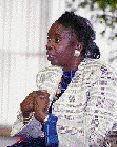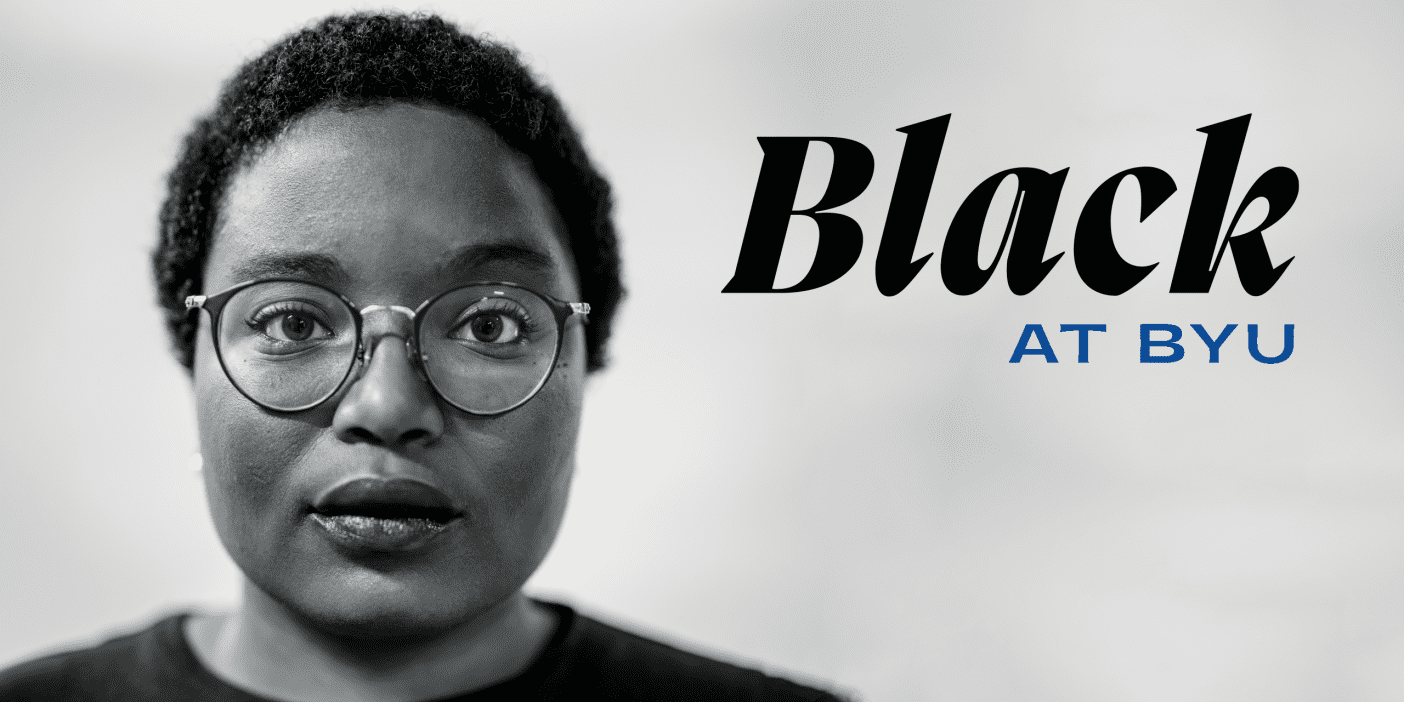By Noelle Barker
Two women keenly aware of their evolving cultures spoke to BYU audiences in February. As a part of Black History Month, Aminata Sow Fall, an award-winning Senegalese author, and Myrlie Evers-Williams, chair of the national board of directors for the NAACP, spoke at BYU and shared their beliefs about the importance of looking to the past as a guide for the future.

“One vote does matter. We have the power to make this country what we want it to be” -Myrlie Evers-Williams
Fall, considered the Þrst woman Þction writer in Francophone Africa, spoke of the effect of modern times on African cultures and literature in a university forum address Feb. 4.
In the early part of this century, said Fall, Africans lived according to the traditions and values of their own cultures. As the decades passed, however, Western ideas found their way into African societies. Many of the rural villages still hold to their traditions, but urban centers have adopted modern lifestyles.
According to Fall, this cultural transition has been difficult for Africans, who have struggled to Þnd a balance between ancestral values and modern aspirations without having time to prepare for the transition.
“Elsewhere, people have had many centuries to Þnd their marks,” Fall said. “In Africa, history was interrupted by painful and bloody parentheses. We did not have time to prepare our transition.”
Today, Africans are unsure of where all this change is going to lead them. Fall is conÞdent, though, that Africa is not dying, despite the assertions of some. She believes Africa must hold onto its traditions as it evolves.
“It would be a big mistake to think that we must throw away our cultures,” Fall said. “They are our heritage; they help us face both time and the world, so that when we meet other people and take something from them, we can give them something in return.”
Myrlie Evers-Williams emphasized this idea as well when she addressed students a few weeks later. She stressed that in moving forward to build the future, society must remember and learn from the past.
“None of us is an island unto ourselves. Whatever it is that we do, whatever it is that we accomplish, we accomplish that based on what someone has done before us,” Evers-Williams said.
Evers-Williams, whose Þrst husband was the assassinated civil rights leader Medgar Evers, encouraged audience members to remember and learn from the efforts of civil rights leaders who worked to make the United States right for everyone.

“Tradition will not be a hinderance to change; it will be the catalyst of progress” -Aminata Sow Fall
African-Americans have made much progress over the last 30 to 40 years, yet America Þnds itself at a crossroads again, she said. Since the civil rights movement, people have relaxed their efforts to ensure ethnic equality, and people of all races need to unite once again.
“We have the power in our hands to make this country the land we want it to be. What kind of America will you help this country be?” Evers-Williams concluded.
Both Evers-Williams and Fall have received domestic and international acclaim for their contributions to the literary world. Fall was awarded The Great Literary Prize of Black Africa in 1980 for her novel Beggar’s Strike. In 1982 her novel The Call of the Ring won the International Prize for African Letters; it was also a finalist for the Prix Goncourt, the most prestigious literary prize in France. Her sixth novel is due to be published this summer.
In addition to heading the Southern California Democratic Women’s Division, working for the Los Angeles Board of Public Works, and serving as a contributing editor for Ladies’ Home Journal, Evers-Williams has written For Us, the Living,depicting the life of Medgar Evers and the civil rights struggle in Mississippi during the 1950s and 1960s. She has also authored the best-seller I Dream a World: Black Women Who Changed America.









